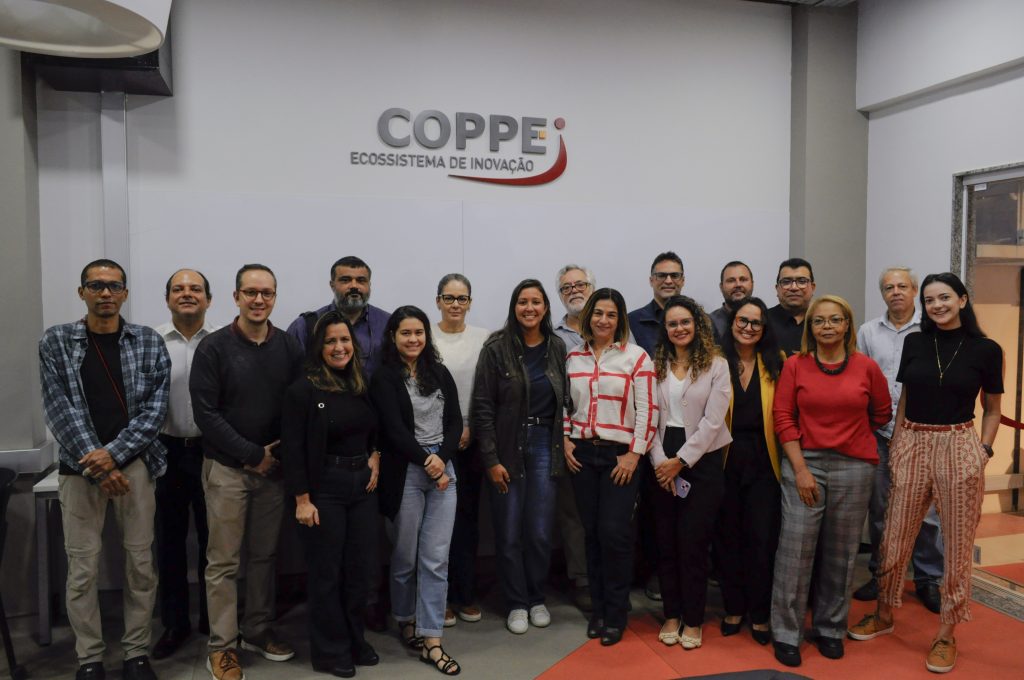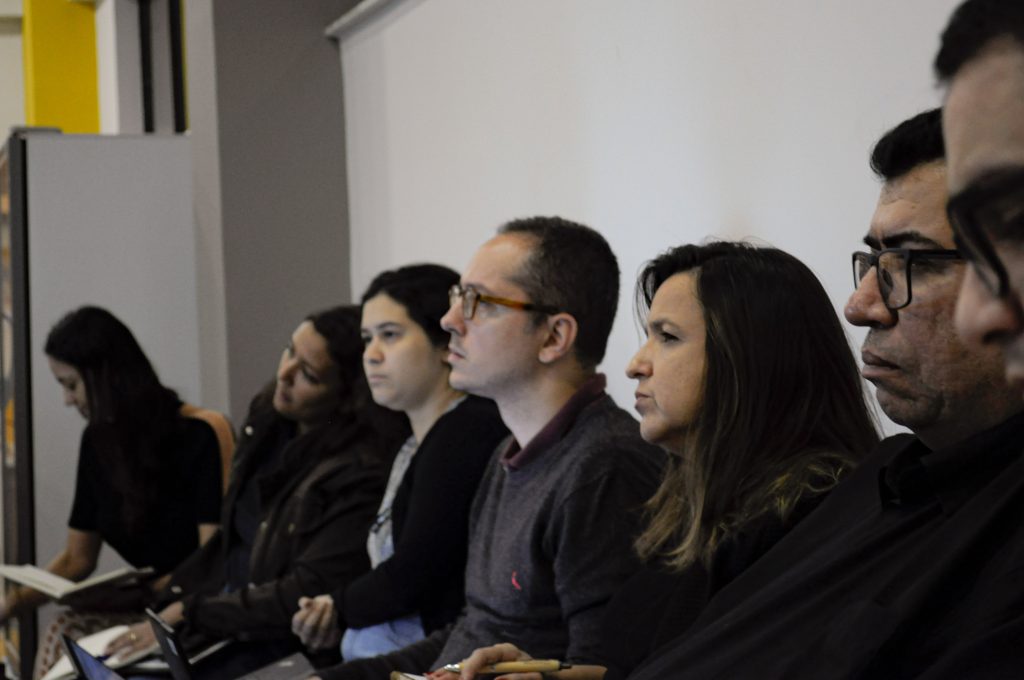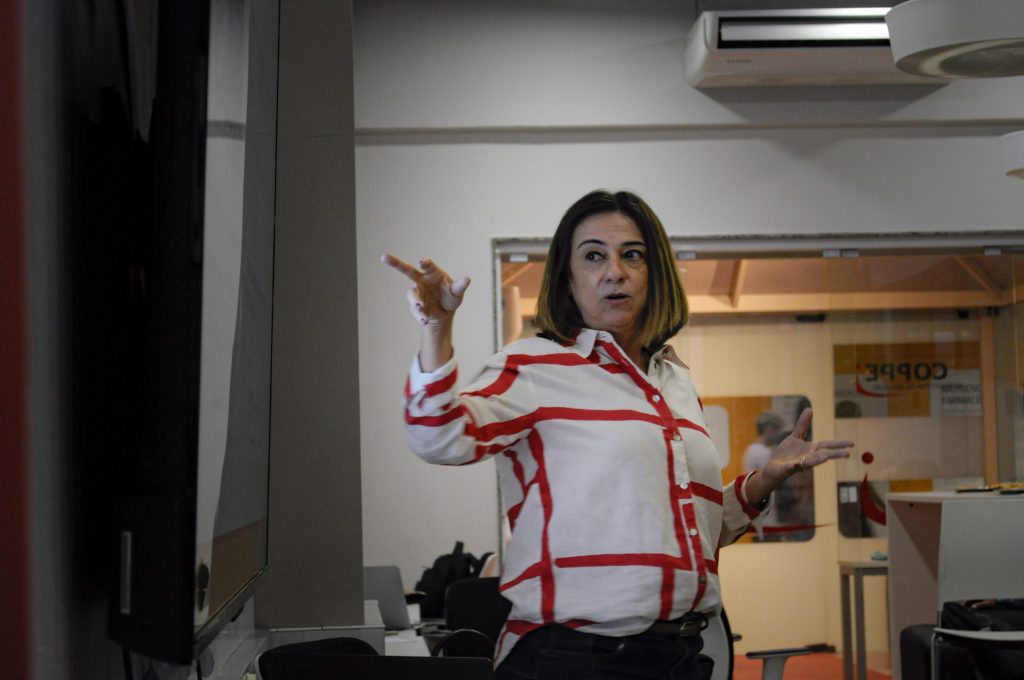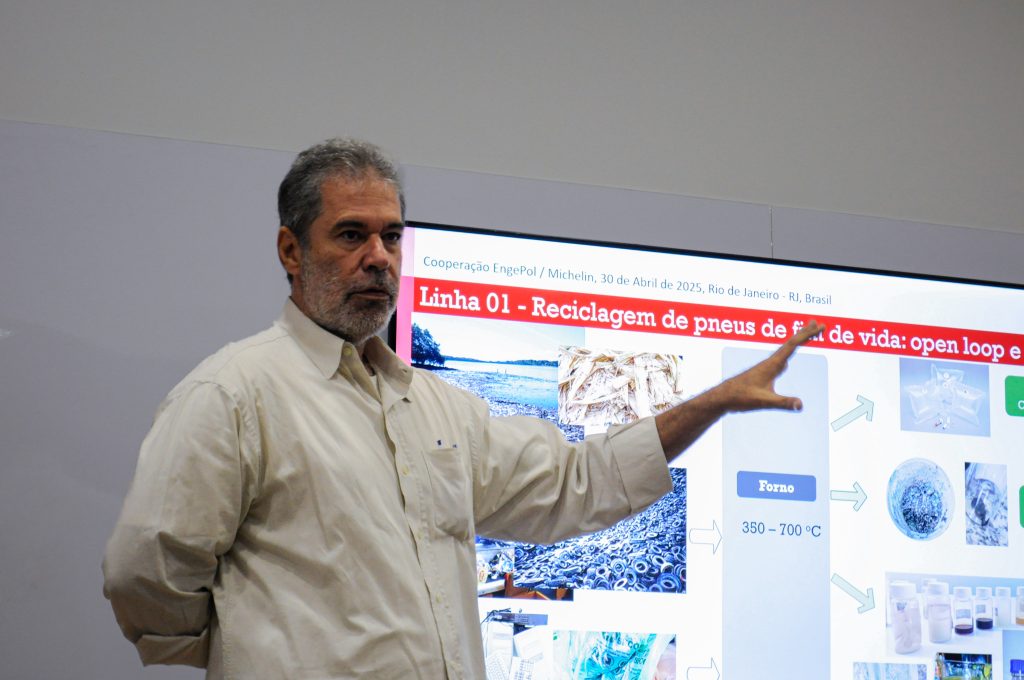Coppe and Michelin discuss collaboration to accelerate sustainable solutions in industrial processing and management
Planeta COPPE / Chemical Engineering / Civil Engineering / Energy Planning / Institutional News / Low Carbon / Metallurgical and Materials Engineering / Nanotechnology Engineering / Transport Engineering / News
Date: 06/05/2025

Coppe/UFRJ and Michelin have taken an important step towards building a partnership focused on innovation with a positive environmental impact. During a meeting carried out on April 30th, leaders from 8 Coppe laboratories presented Michelin technicians with research and technologies with a high potential for practical application to the French company’s global challenges – especially in the areas of industrial sustainability, energy management and the use of renewable materials.
With over 130 years of history, Michelin is one of the world’s leading manufacturers of tires and mobility services, operating in 69 industrial units and employing more than 112 thousand people worldwide. The company has set an ambitious goal of incorporating 100% recycled or renewable materials into its tires by 2050, without compromising safety and durability.

In this context, Coppe presents itself as a strategic partner. se apresenta como parceira estratégica. Recognized as one of the leading centers of engineering excellence in Latin America, Coppe develops scientific solutions with a strong vocation for industrial application in areas such as energy, environment, materials chemistry, nanotechnology and transportation. Its collaborative innovation model has already driven advances in key sectors of the Brazilian economy — and can now contribute to Michelin’s global commitments.
During the meeting, Coppe researchers presented studies focused on three areas of great interest to Michelin:
- Recycling of end-of-life tires, with an emphasis on the chemical recycling of polymers;
- Studies on biomass and energy consumption, especially in regions such as Rio de Janeiro, São Paulo, Amazonas, Bahia and Espírito Santo;
- Application of renewable and recyclable materials in tire shops.

The research presented ranged from the production of biogas and biomethane as part of Brazil’s energy transition to innovations in material transportation and the use of nanotechnology in sustainable materials. Professors from the areas of Chemical, Civil, Transportation, Energy Planning, Nanotechnology and Metallurgical Engineering presented specific solutions for each of the topics discussed.
“This meeting demonstrated how the knowledge developed at Coppe can be directed to solving real challenges in the global industry. Michelin has ambitious goals, and Coppe has applied science and human talent to help achieve them. The synergy is clear,” highlighted Professor Marysilvia Costa, Director for Technology and Innovation at Coppe, who also participated as a researcher in the Metallurgical and Materials Engineering Program.

In addition to Marysilvia, the following people participated on behalf of Coppe: professor Alfredo Renault, director of the Virtual Center for Low Carbon Solutions; professor Thiago Aragão (Civil Engineering and deputy director for Technology and Innovation); professors Henrique Poltronieri Pacheco, José Carlos Pinto and Tito Livio Alves (Chemical Engineering); Marcelino Vieira (Transport Engineering); Marco Aurélio Santos (Energy Planning); and the students Daniele Brandão and Carolina Delfino, representing professor Fernando Gomes Junior (Nanotechnology Engineering).
Representing different areas of Michelin, participaram Luiz Cláudio Fenta, Elaine Galdino, Lucas Teixeira Costa, Thaís Garcia Rocha, Fernanda Leite and Ana Caroline Alcântara participated — technicians from sectors ranging from supplies to industrialization. They highlighted the alignment between the presented research and the company’s concrete needs, including the adoption of new methodologies by suppliers.
The expectation is that, based on this first meeting, Coppe and Michelin will deepen discussions for the development of collaborative pilot projects, focusing on sustainable solutions for industrial application. The possibility of a technical cooperation agreement between the institutions is also being studied.
